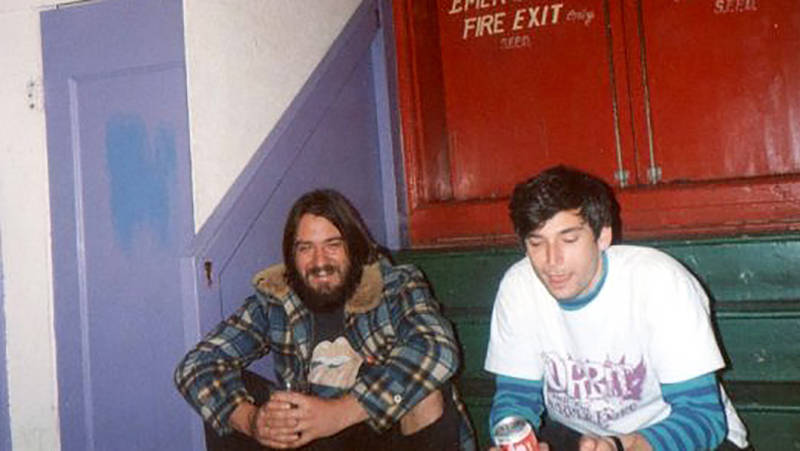Friends describe Tom Guido as the type of quirky character one could only find in San Francisco.
From 1993 to 1999, he ran North Beach nightclub the Purple Onion, revitalizing the standup comedy landmark as a destination for the city’s booming garage-rock scene and a home for his own eccentric persona. As manager, bartender, doorman, talent buyer and emcee, Guido operated the venue almost singlehandedly, and his strong personality permeated the basement club.
Tony Bedard, a longtime talent buyer for the recently shuttered Hemlock Tavern, remembers Guido flitting about the Purple Onion, jumping on stage to interrupt the bands whenever he felt like interjecting his opinions about the music. During those years, Guido was a North Beach legend who attracted admiration and ire in equal measure.
“He had this manic, crazy personality,” says Bedard. “The Purple Onion was infused with this spirit of roiling chaos. How the whole thing existed for that long—no one could figure it out. Tom was so mercurial and charismatic, but he also irritated people and pissed people off.”
Bedard and others in the Bay Area music community learned Wednesday that Guido died in a Jan. 8 slaying in the Tenderloin. On Tuesday, police responded to a call about a man who jumped out of a window on the 900 block of Post Street. They found Guido, 58, inside the building with gashes to the neck and head; he was transported to a hospital, where he succumbed to his wounds. The medical examiner ruled Guido’s death a homicide.



